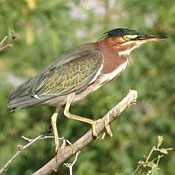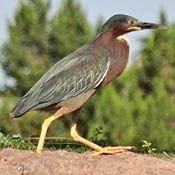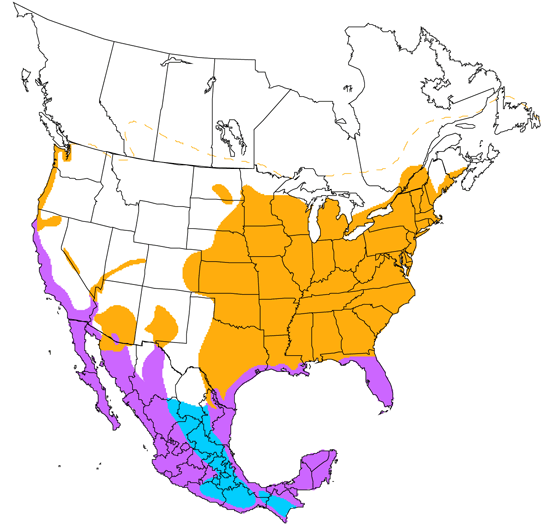The four-digit banding code is GRHE.

Long Legged Waders
Green Heron

Length: 18 in. (46 cm )
Male | Robert Shantz
Male | Charles Kazilek
Marsh / swamp

Open water
Riparian / River forest
View Citation
Bibliographic details:
- Article: Green Heron
- Author(s): Dr. Biology
- Publisher: Arizona State University School of Life Sciences Ask A Biologist
- Site name: ASU - Ask A Biologist
- Date published: July 13, 2017
- Date accessed: November 18, 2024
- Link: https://askabiologist.asu.edu/activities/bird/green-heron
APA Style
Dr. Biology. (2017, July 13). Green Heron. ASU - Ask A Biologist. Retrieved November 18, 2024 from https://askabiologist.asu.edu/activities/bird/green-heron
Chicago Manual of Style
Dr. Biology. "Green Heron". ASU - Ask A Biologist. 13 July, 2017. https://askabiologist.asu.edu/activities/bird/green-heron
Dr. Biology. "Green Heron". ASU - Ask A Biologist. 13 Jul 2017. ASU - Ask A Biologist, Web. 18 Nov 2024. https://askabiologist.asu.edu/activities/bird/green-heron
MLA 2017 Style
Be Part of
Ask A Biologist
By volunteering, or simply sending us feedback on the site. Scientists, teachers, writers, illustrators, and translators are all important to the program. If you are interested in helping with the website we have a Volunteers page to get the process started.










